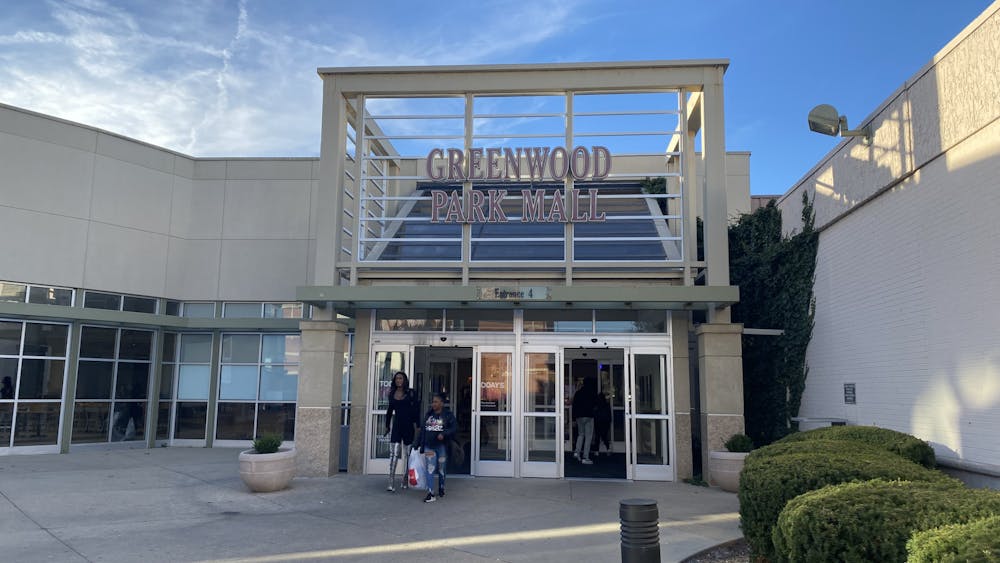For the past seven years, US troops have been deployed to Iraq to do everything from find weapons of mass destruction, go on door-to-door foot patrols, construct water towers and pass out teddy bears at a hospital.
This complicated war environment gives each soldier a different perspective on the war they’re all fighting. Student veterans discuss their positions on the war in Iraq:
Chris Hughie
"Iraq was pretty mellow. Before we went over there, we were basically told that we were going to be in these cans, have internet and chow halls and stuff. I was just like ‘this might be a vacation kind of. Well not really a vacation, but Iraq was nice, Afghanistan was pretty miserable."
“When I think about Iraq, I think about going to mid-rats, the mid rations. The chow hall serves four meals a day. I always liked to go to the ones that they served at 12 at night. I think about going to the gym a lot. I think about smoking a pack a day. Specifically there was this one town in Iraq called Hit that smelled horrible.”
“Iraq just seemed to be coming to an end and I got out there and it was."
Jeremy Degler
"In Iraq, I actually felt like I was doing something. On a day-to-day basis, you get to see that these people…. They haven’t had anything given to them their entire life. And you see they way that they live. You kind of feel like there for a purpose, that someday hopefully in the future things will get better for them. And just being there talking to them on a day to day basis, asking them what they need from us, anything that we can do to help them – I felt like that was the reason I joined. I felt that I was actually doing what I came there to do."
"I don’t think Bush’s motives for going to Iraq might have been in the right interest. I don’t think he had his head in the right place at all. Actually being there thinking maybe somewhere down the road that the children in Iraq might have a better future because of what we did that’s really what I hope for. It’s a bleak future for them from what I saw and I’m really hoping that some day things will get better for them."
"I think that the way that these people lived under Saddam was depressing. I don’t think they ever did anything to deserve the treatment that they got. But at the same time, I don’t trust Bush’s reasons that we went into there. As we saw, there were no weapons of mass destruction. A lot of stuff fell apart from the whole reason we went into that country. I just keep hoping that something good comes from it."
Kayla Nier
“In my opinion, is that it’s a lose/lose situation for the war, so to speak. It’s: you pull out now and everything that we’ve done in the last 9 years is going to crumble and be forgotten about but you leave us in there for the next 20 years and soldiers are still going to be shot… and you pull them out in 20 years and people are still going to go back to their old ways. So you pull out now they are going to go back to their old ways, you pull out now they are going to go back to their old ways, it’s kind of a lose/lose situation."
“But it’s also a win for Iraq. They have electricity there; they have jobs; we built water towers, schools, hospitals, and houses. They didn’t have that before and they have it all now. When I was first deployed, I went 26 hours thinking “well, I’ve seen pictures of Iraq; I had a vision of what is was going to be like: long, flat land and dust and sand.” I landed there and was like ‘Oh my gosh, there’s paved roads, power lines, water towers, there’s houses now; we’ve built schools and… there’s stop signs.’”
Tim Whitson
“What I walked away from it with was definitely some experiences that I would never take away from myself, but also an experience I would never do again. I’m not saying I would never defend myself or that I don’t think the country should defend itself, but the war in Iraq, I feel, is an enoromous waste of resources, money, lives.”
“What did we really accomplish? I don’t see that the ends justify the means. I don’t understand how people haven’t been held responsible for making the decision to go to war when it was a blatant lie to begin with. Now, what? We don’t hold them accountable for it and we continue to stay there. What sense does it make?”
“At the time of enlisting, I definitely had the mindset that it was the right thing. I was a kid, I guess, that’s the way I look at it. The war itself I wasn’t focused on. I didn’t say “man, I want to go to war.” I just wanted to be in the military.”





